Colin Pitchfork: Double child killer and rapist to be released
- Published
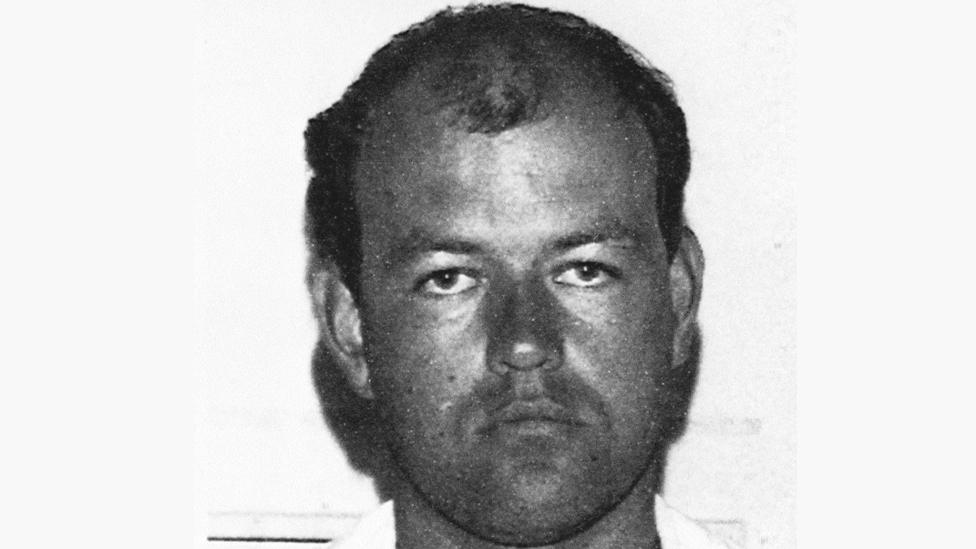
Colin Pitchfork was jailed in 1988 but released in 2021 before his recall to prison two months later
Double child killer and rapist Colin Pitchfork has been granted parole and will be released from prison.
Pitchfork was jailed for life for raping and strangling two 15-year-old girls, Lynda Mann and Dawn Ashworth, in Leicestershire in 1983 and 1986.
The 63-year-old was released in 2021, before being arrested and sent back to prison two months later.
Following a hearing held in private in April, the Parole Board has decided Pitchfork can be released.
Pitchfork was the first murderer to be convicted using DNA evidence.
In its decision, the Parole Board "determined that it was no longer necessary for the protection of the public for Mr Pitchfork to remain confined and thereby directed his release".
"The prisoner had committed shocking, serious offences, causing immeasurable harm to his victims," it said.
"The panel noted that Mr Pitchfork has been in prison for a very long time. His behaviour for almost all of that time has not caused any concern... and the evidence before the panel demonstrated that he had learnt the lessons that he had been taught and had worked out how to apply them in practice."
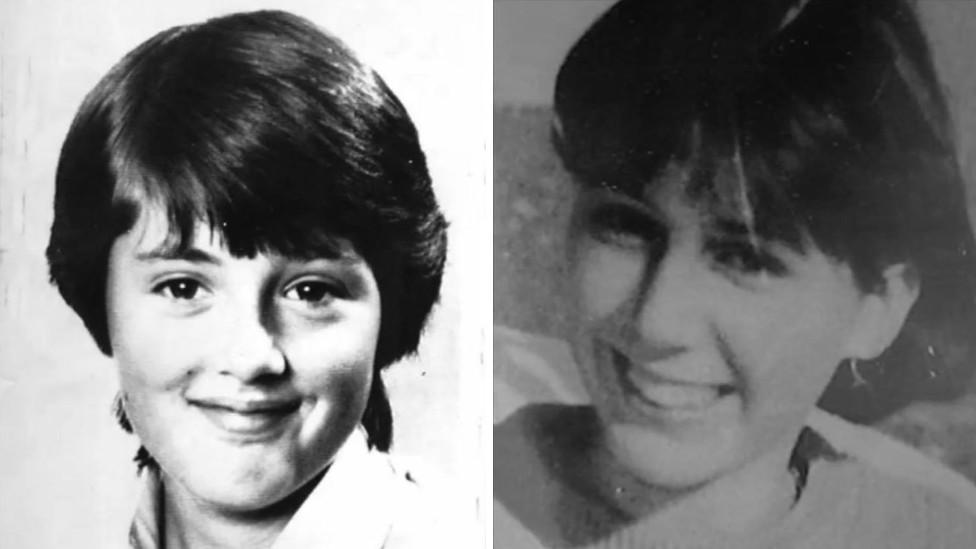
Dawn Ashworth and Lynda Mann were raped and murdered by Pitchfork
Lin Garner, a friend of Dawn's mother Barbara, told the BBC "it's hard to put into words how we feel".
"I know the torture they have gone through and now they are going through it over and over again. It makes you feel so despairing," she said.
"Both families must be going through hell again. Barbara is devastated, each time it happens it's another knife, it's like a torture.
"We know there are rules but following the rules doesn't make it right. There isn't a rulebook for this, it's about people and about getting real justice."
'Flawed'
Pitchfork, jailed for a minimum of 30 years in 1988, was originally deemed suitable for release in 2021 - after serving 33 years - a decision that sparked a public outcry and saw the government challenge it.
Since then the government has announced proposed changes to the parole system, which would include giving ministers powers to block the release of serious offenders.
The Ministry of Justice (MoJ) said the reforms were part of the Victims and Prisoners Bill, which is currently in committee stage.
Pitchfork was recalled to prison shortly after his release, after he was understood to have approached young women on multiple occasions while out on walks from the bail hostel where he was living.
But the Parole Board panel found Pitchfork's recall to custody was "flawed and not supported by the evidence".
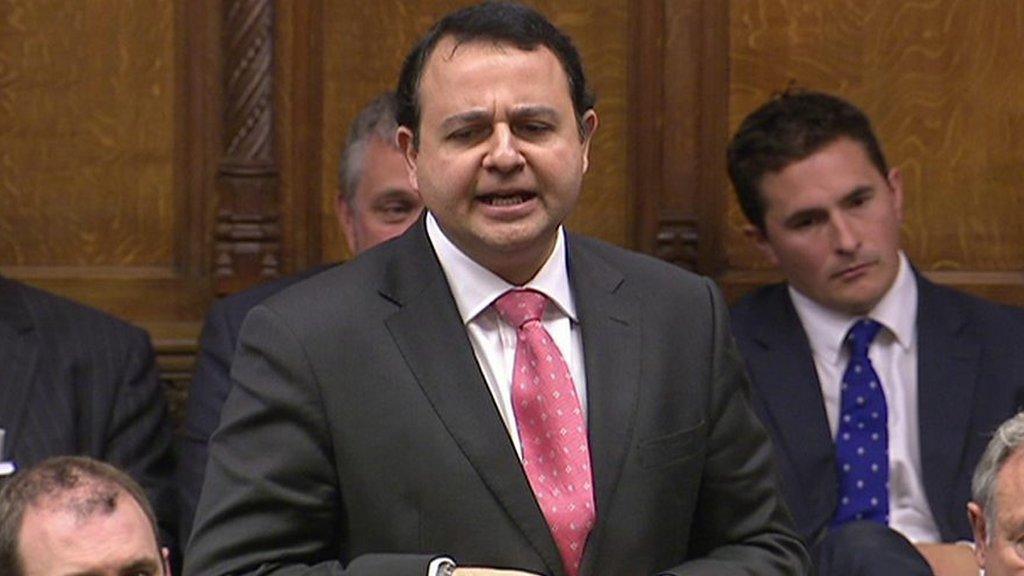
Local MP Alberto Costa has condemned the decision
The Parole Board said while on licence, Pitchfork was warned over his attitude towards probation and for speaking to a lone female, who he said he had "spoken to, and gave directions to" in a car park outside a Probation Service office.
In November, it was also suggested Pitchfork had taken "counter measures" to affect the result of a polygraph test.
Four days later, Pitchfork was recalled to custody by the secretary of state, which was the then justice secretary Dominic Raab.
Pitchfork was told this was because "he had disclosed approaching a lone female, which caused concern that he was approaching young females and frequenting places young females were likely to go".
The secretary of state also advised Pitchfork that he "had spent time walking in forest/park areas, on occasion wearing a high-visibility jacket and claiming to litter pick, had been confrontational and aggressive towards his probation officer, and had been suspected of using 'counter-measures' in his polygraph test".
When the Parole Board reviewed the recall decision, "the secretary of state accepted that there was no evidence to support the allegation that Mr Pitchfork had gone out purporting to pick litter wearing a high-visibility jacket".
"He had been allowed to undertake litter picking and this was something that he had previously done in prison. He had not worn a high-visibility jacket when doing so in the community," the Parole Board said.
"The secretary of state accepted that he had been in receipt of inaccurate information at the time the recall decision was made.
"Aside from Mr Pitchfork's contact with a lone female of unknown age, in the probation car park, which was only known about because of his own admission, it was confirmed that there was no evidence that Mr Pitchfork had approached any young females."
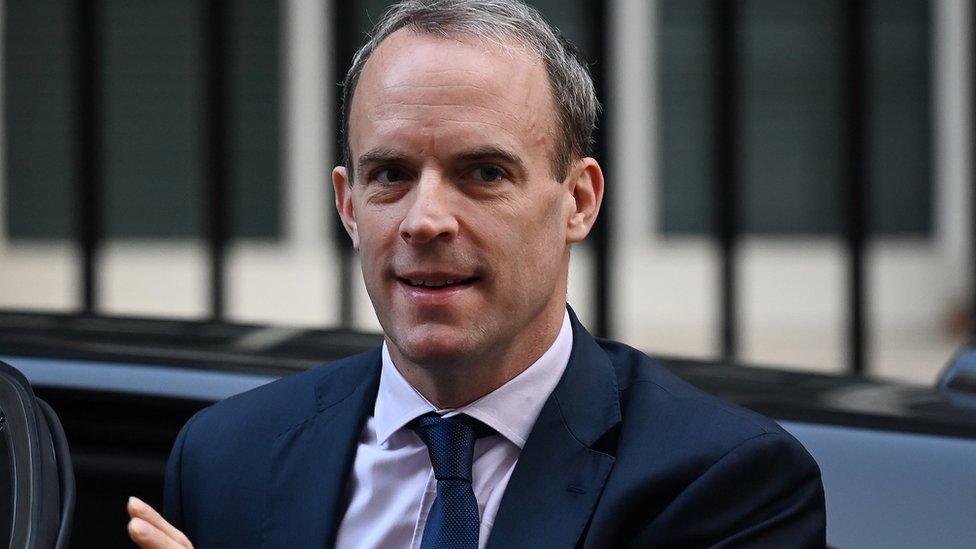
Former justice secretary Dominic Raab previously said he understood the public's frustration at the Pitchfork case
Pitchfork's probation officer had also not been consulted on the decision to send him back to prison, the panel added.
"The panel considered this to be concerning because it was not an emergency recall decision and the probation officer would have been most aware of any increasing risk in the case," it said.
The panel concluded the decision to send Pitchfork back to custody was "made on the basis of some of the allegations not being proved and upon some incorrect information".
The new licence conditions on Pitchfork include surrendering his passport, to disclose developing relationships and an "exclusion zone to avoid contact with victims, women and children".
'Very upsetting'
Alberto Costa, MP for South Leicestershire where the teenagers were killed, said he was "deeply disappointed" by the board's decision.
"I would like to reassure constituents that I will be writing to the justice secretary to ask that he seek an immediate and urgent review," he said.
"It is simply unthinkable that a man who committed such egregious crimes should ever be released, and I will be asking the government to challenge this decision in the strongest possible terms."
An MoJ spokesperson added: "This will be a very upsetting decision for the families of Lynda Mann and Dawn Ashworth and our heartfelt sympathies remain with them.
"Pitchfork will remain in prison while the Lord Chancellor looks extremely carefully at whether to ask the Parole Board to reconsider its decision."
Following its decision, a Parole Board spokesperson said: "Parole reviews are undertaken thoroughly and with extreme care. Protecting the public is our number one priority, however our sole focus in law is risk, not punishment, and must be based on evidence.
"This case is eligible for reconsideration if any party thinks the decision is irrational or unfair."

Colin Pitchfork: Two brutal murders
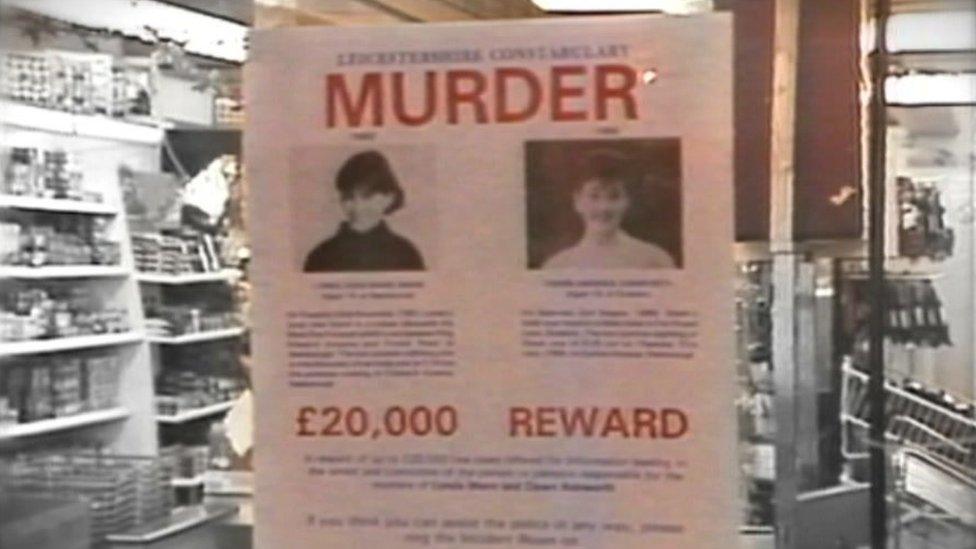
Colin Pitchfork, 22 at the time of the first murder, was married with two sons. He was a baker who grew up in rural Leicestershire and lived in Littlethorpe
In November 1983 he left his baby son sleeping in the back of his car and raped and strangled 15-year-old Lynda Mann in Narborough. He then drove home and put his son to bed
Three years later, less than a mile from where Lynda died, he raped and murdered Dawn Ashworth, also 15, of Enderby. The pathologist who examined her body described it as a "brutal sexual assault"
A police investigation initially led to the wrong man, a local 17-year-old who falsely confessed to one of the killings. After an unprecedented mass screening of 5,000 men using pioneering "DNA profiling" technology, Pitchfork was eventually caught. At first, Pitchfork had evaded justice by persuading a colleague to take the test for him
He pleaded guilty to both murders in September 1987 and was sentenced to life in January 1988. The judge said the killings were "particularly sadistic" and he doubted Pitchfork would ever be released
In 2009, his 30-year life tariff was reduced by two years, external for "exceptional progress" - a decision that was strongly criticised by the families of his victims
He was moved to an undisclosed open prison at some point prior to 8 January 2017, after his request for release

Follow BBC East Midlands on Facebook, external, on Twitter, external, or on Instagram, external. Send your story ideas to eastmidsnews@bbc.co.uk, external.
Related topics
- Published7 March 2023

- Published22 April 2022
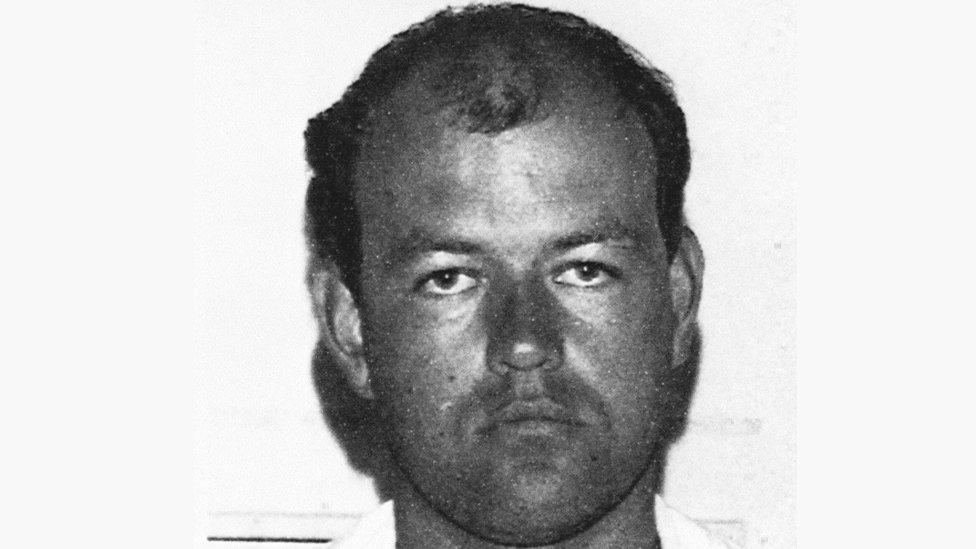
- Published22 November 2021
